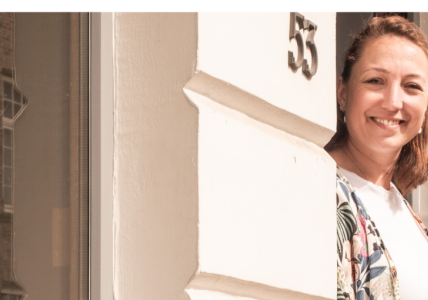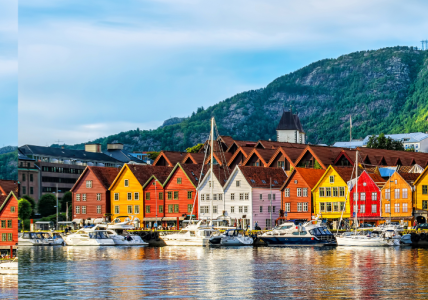Building the RIGHT skills for the RIGHT future.
The RIGHT project addressed the gap between the skills of the workforce and the industry's emerging needs for competencies.
We focused on how to bridge this gap in the emerging and fast changing environment of the energy and blue sectors while also helping the industries to innovate and raise competitiveness.

Regions in transition
All regions are facing fast changing and unpredictable societal challenges. Green, digital, and inclusive strategies are needed to meet climate goals while maintaining European values and way of life.
Regions must wean off traditional industries and dependence on fossil fuels and boost businesses’ uptake of new technologies. In the RIGHT regions, carbon-heavy energy and marine economies dominate. Also, there is a shortage of skills within emerging industries.
The video below explains what RIGHT was all about and how we made a change:
Business in transition
Businesses know that they must change. We supported SMEs to understand why they should innovate and to articulate their skills and innovation needs. Pilots focusing on this aspect showed that it is key to support SMEs in ways that work for them.
Due to the diverse needs of businesses in transition, flexibility and customisation are essential. SMEs, in particular, have difficulty connecting to new horizontal value chains and need guidance on this too. They also need to embrace lifelong learning as part of business development.
Another insight from RIGHT is the all-important funding gap that is hindering SMEs to go ‘green/blue/digital’. Incentives and support are therefore important considerations.
For example, one of the challenges for SMEs is to deal with shortage of skilled workers on the one hand and redundant workers on the other hand. Supporting choices to re-skill or up-skill their personnel would be a preferred alternative to cutting down on staff. In addition, connecting to new horizontal value chains and emerging industries are often complex processes for SMEs. They need coordinated and favourable framework conditions to do so.
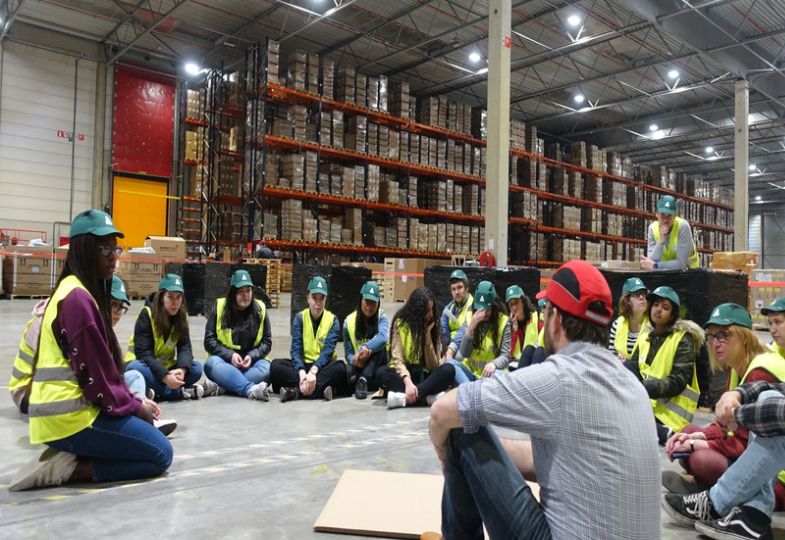
Participants in a port introduction game. Photo © RIGHT.
Pilots to close the skills gap
RIGHT started out by mapping the challenges of skills gaps in the North Sea Region. That is, the skills of local work forces, the design of education curriculums and training systems for present and future needs of an industry in restructuring and smart specialization. This was done for each of the piloting regions.
The next step was to address the identified gaps. For this purpose, a total of 16 pilots were set up and carried out. The pilots proved to be catalysts for change in the different arenas and regions.
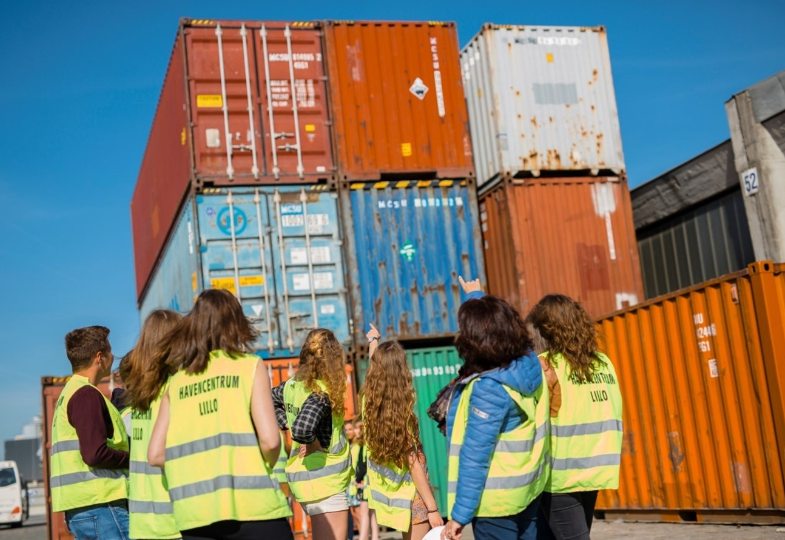
Photo © RIGHT.
Ports: Raising awareness and bridging skills gaps
Port Chances is one of the pilots conducted in Antwerp and was successfully finished in May 2020. The aim was to smooth the pathway for young people to develop professionally.
The fact that the local employees, proud of their job and enterprise, were able to talk about their passion, and were witness to the young people learning about their daily tasks through games, was priceless.
Port Chances can show young job market entrants what necessary skills they need for performing well in a specific profession by using tools such as presentations and films.
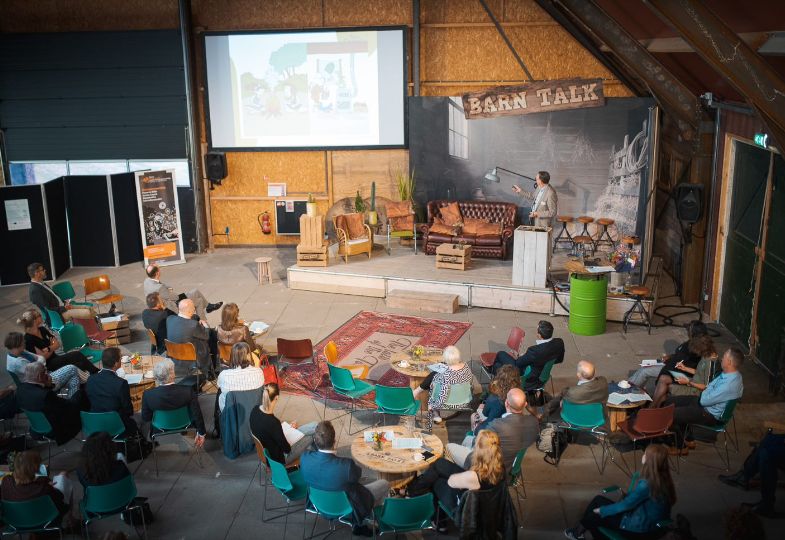
Photo © RIGHT.
Business development through skills literacy
The Mind the Gap pilot supported companies to develop their business through understanding what skills are required for growth and manageability.
The Mind the Gap tool is a digital method for mapping skills needs. It targets SMEs in the manufacturing industry, business advisors and consultants, and RIGHT partner regions. With this tool, companies can focus on their business plan in relation to the necessary skills for achieving their business goals.
Mind the Gap gives companies a good structure and a foundation to stand on when they work with their strategic competence supply plan. This applies regardless of whether they are to develop skills for staff, hire new employees, buy in consultants, or hire staff.
SME education for new technology, training, and upskilling
The Recirculating Aquaculture Systems (RAS) pilot supported the education of SMEs that make use of or implement new technology, through employee-dedicated tools. The pilot created a training programme that was offered in the region. The module was accredited and developed in collaboration with regional industry stakeholders to ensure the level of proficiency required for SME employees and students.
This pilot also aims to ensure the SMEs’ abilities to engage in capacity building. The goal is to reduce the skills gap within the aquaculture sector through developing and implementing a flexible educational programme for RAS technology.
Marine Trading Platform
It is a platform dedicated to Marine education and training for current and new employees in the blue and energy sectors. The output of this pilot is a searchable catalogue of courses in the RIGHT partner regions.
The collection ranges from short courses up to PhD programmes. Besides university programmes, also vocational courses and specific courses to reskill and upskill workers will be included.
The legacy of RIGHT
In short, RIGHT contributed to growth in the North Sea Region by connecting smart specialisation strategies to human capital and skills development.
All regions are dealing with the shifts to become green, digital, and more sustainable whilst creating inclusive societies for their citizens. Transitions are taking place, and many are willing but need support.
Through the regional innovation ecosystem audits, RIGHT partners discovered they faced similar overall challenges despite national or regional borders. This created common interests and stronger partnerships. RIGHT provided an overview of existing skills gaps in the blue and energy sectors in the North Sea Region, and through its pilots discovered some ways forward.
Top 3 project highlights
Mapping skills and innovation gaps
RIGHT analysed and mapped the skills and innovation gaps within the blue economy and energy sectors in the North Sea Region. The resulting overview provides a firm basis for addressing these gaps.
Helping youth along
Some pilots explored how to engage youth in discovering the skills that will be needed at the workplaces in the future.
Helping SMEs to focus on skills
The digital Mind the Gap tool proved useful for SMEs to understand which skills are lacking or will be necessary in the near future. This helps them to stay competitive in today's changing environment.
Learn more
The Interreg North Sea project RIGHT SKILLS FOR THE RIGHT FUTURE was a collaboration of 14 partners from Belgium, Denmark, Germany, the Netherlands, Scotland, Sweden and Norway. The project intended to contribute to growth in the North Sea Region by connecting smart specialisation strategies to human capital and skills development and to support competitiveness.
Visit the RIGHT project's website to find out more about their work.
Contact
To learn more about RIGHT, get in touch with the people behind the project:
Project manager Kate Clarke, email Katharine.Louise.Clarke@vlfk.no
Project adviser Shima Souraki, email Shima.Souraki@vlfk.no
About the author
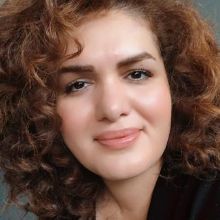
Shima Souraki is a process engineer. She has also studied international business and economics in Sweden, France and Norway.
She was a project adviser for the RIGHT project and she works as an adviser at the Norwegian County Council of Vestland.
Top image: ©RIGHT
